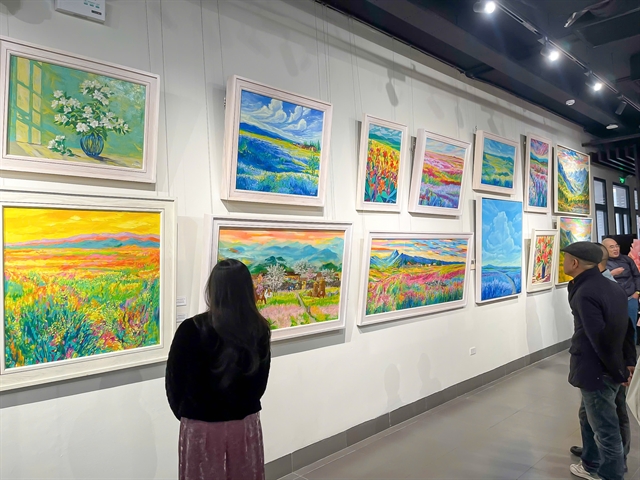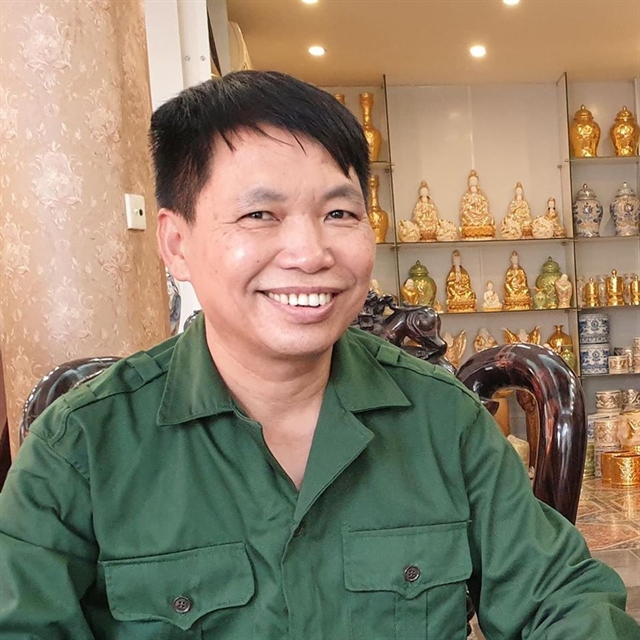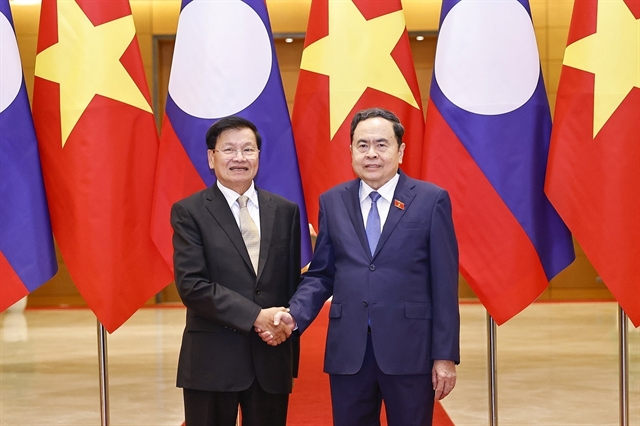 Life & Style
Life & Style


|
| Military writer Đặng Vương Hưng. Photo courtesy of Đặng Vương Hưng |
A four-volume series titled Nhật Ký Thời Chiến Việt Nam (Wartime Diaries) has been released by the Writers' Association Publishing House and Quỹ Mãi Mãi Tuổi 20 (Forever Twenty Fund) to mark the 45th Liberation and Reunification Day on April 30.
The book was compiled and edited by military writer Đặng Vương Hưng over 16 years.
Việt Nam News reporter Nguyễn Bình interviews Hưng about the book.
Why did you publish the book?
I'm a veteran and like other Vietnamese soldiers, I fought against the Chinese invasion of Vietnamese northern border from 1979-89. I understand what war is, and sacrifice and loss.
Later I became a writer and I have visited many places to meet witnesses of the war. These people have helped me to learn more about historical events. I have also selected documentaries from these field trips.
This experience has helped me understand that diaries and notebooks which seem private and old can give us extremely valuable information about history.
They involve all aspects of society such as the spirit, material and cultural values that explain the secrets of history. They make our present and future better.
We started compiling the books in 2004. It is an honest look at the wars against the American and Chinese invasions in our effort to liberate and reunify the country.
These wars ended a long time ago, but their consequences are still imprinted on every Vietnamese family.
Why don't you write a memoir a non-fiction book based on these diaries?
For many reasons, there are people who do not keep a diary throughout their life. But for others, writing a diary is a passion. For some people, including professional writers, diaries aren't just about writing. They tell life stories. When people write a diary, they don't think their thoughts will ever be published.
A diary is fresh and alive. Perhaps the value of the diary genre is the truthful emotions of the writers, their honesty with themselves and the characters and events.
Diary writing is a way to help people reduce stress caused by the many difficulties they face in life.
When you read the diaries what impressed you most?
There was a principal when we compiled the series. It was to respect the authors' writing styles. That includes terse language, underlined words and dialect.
The diaries differ in length from dozens to hundreds of pages. We think the value of the diaries does not depend on the length. Each author had a different perspective and thoughts about the war.
The works complement each other to provide readers with different angles and a panorama of Vietnamese society during wartime.
Two thirds of the authors have already died.
Can you see a common theme in these diaries?
Most of the writers, including intellectual and artists, joined the battles against the Americans and Chinese.
The diaries were written at different times by different people. But all of them have the same emotions of homesickness. They wrote to their families in quiet moments or on their way to the front.
Many pages were written more than half a century ago. They are mostly faded and the ink is blurred. They are now kept in Vietnamese and foreign museums.
A diary is poetic with pure language, full of desire for a peaceful life. The words include oaths and promises, recommendations and testaments, and romantic lyrics.
Will you continue to collect and publish wartime diaries?
Yes, we will. I hope that we will have access to diaries written by people from the other side. From a personal perspective, the soldiers on the two sides are the same. They have families and the same emotions.
If unfortunate they sacrificed so much, and their loss cannot compensate for their families.
We really want to collect diaries written by the other side to add to the book and heal the wounds of war in order to protect world peace.
The series was only recently finished and does not include some published diaries from the Chinese-Vietnamese border war.
We want to continue reviewing the books to reprint. VNS





 Brandinfo
Brandinfo